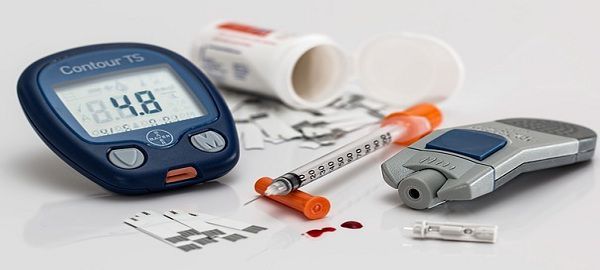what tests are done for hypoglycemia The three levels of hypoglycemia – diabetes daily
Understanding Hypoglycemia: What You Should Know
Have you ever experienced a sudden drop in blood sugar levels, leaving you feeling weak, shaky, and fatigued? These symptoms could be indicators of a condition called hypoglycemia. In this article, we will delve deeper into what hypoglycemia is, its causes, and how you can manage it effectively.
What is Hypoglycemia?
Hypoglycemia occurs when the glucose levels in your blood drop below normal. Glucose is the primary source of energy for your body and brain, so it is crucial to maintain its levels within a specific range. Low blood sugar levels can be dangerous and potentially life-threatening if not treated promptly.
 There are several factors that can lead to hypoglycemia. The most common cause is diabetes, especially if you are taking medications like insulin or certain oral hypoglycemic agents. However, hypoglycemia can also occur in individuals who do not have diabetes. Other causes include excessive alcohol consumption, certain medications, hormonal imbalances, and critical illnesses.
There are several factors that can lead to hypoglycemia. The most common cause is diabetes, especially if you are taking medications like insulin or certain oral hypoglycemic agents. However, hypoglycemia can also occur in individuals who do not have diabetes. Other causes include excessive alcohol consumption, certain medications, hormonal imbalances, and critical illnesses.
If you experience symptoms like dizziness, sweating, confusion, and irritability, it is essential to check your blood sugar levels. You can use a glucose meter to obtain a quick and accurate reading. If your levels are below 70 mg/dL, it indicates hypoglycemia.
Managing Hypoglycemia
Managing hypoglycemia involves a combination of preventive measures and immediate actions when symptoms occur. Here are some useful tips:
 1. Eat Regular, Balanced Meals: Plan your meals to include a good mix of carbohydrates, proteins, and healthy fats. Avoid skipping meals or delaying them for extended periods, as this can lead to fluctuations in blood sugar levels.
1. Eat Regular, Balanced Meals: Plan your meals to include a good mix of carbohydrates, proteins, and healthy fats. Avoid skipping meals or delaying them for extended periods, as this can lead to fluctuations in blood sugar levels.
2. Carry Snacks: Keep a stash of healthy snacks like nuts, whole fruits, or granola bars with you at all times. These can come in handy when you experience mild symptoms and need a quick source of glucose to raise your blood sugar.
3. Monitor Blood Sugar Levels: Regularly monitor your blood sugar levels, especially if you have diabetes. This will help you identify any patterns or triggers that could contribute to low blood sugar episodes.
4. Inform Others: Make sure your family, friends, or coworkers are aware of your condition and know what to do in case of an emergency. Consider wearing a medical alert bracelet or carrying a card stating that you have hypoglycemia, along with emergency contact information.
5. Exercise Caution with Medications: If you are taking medications that can lower blood sugar levels, follow your doctor’s instructions carefully. Adjustments to doses or timings may be necessary to prevent hypoglycemia.
If you experience severe symptoms of hypoglycemia, such as loss of consciousness or seizures, it is crucial to seek immediate medical attention. Your healthcare provider can offer the appropriate treatment, such as intravenous glucose administration, to quickly raise your blood sugar levels.
Remember, managing hypoglycemia is a continuous process that requires vigilance, self-care, and a proactive approach. By understanding the causes, taking preventive measures, and staying prepared, you can lead a fulfilling life while effectively managing this condition.
Consult your healthcare provider for personalized advice and guidance based on your specific circumstances.
If you are looking for HYPOGLYCEMIA you’ve came to the right place. We have 5 Pics about HYPOGLYCEMIA like HYPOGLYCEMIA, The Three Levels of Hypoglycemia – Diabetes Daily and also HYPOGLYCEMIA. Here you go:
HYPOGLYCEMIA
 thebiosciencenetwork.orgGlycated Hemoglobin (HbA1c Or A1c) Calculator
thebiosciencenetwork.orgGlycated Hemoglobin (HbA1c Or A1c) Calculator
 www.medindia.nethba1c a1c glucose normal glycated hemoglobin calculator level blood levels patients india calculation sugar formula diabetestalk diabetes
www.medindia.nethba1c a1c glucose normal glycated hemoglobin calculator level blood levels patients india calculation sugar formula diabetestalk diabetes
Difference Between Hypoglycemia And Hyperglycemia (with Comparison
 biodifferences.comThe Three Levels Of Hypoglycemia – Diabetes Daily
biodifferences.comThe Three Levels Of Hypoglycemia – Diabetes Daily
 www.diabetesdaily.comhypoglycemia
www.diabetesdaily.comhypoglycemia
Hypoglycemia: What You Should Know About It
 www.janvihospital.comDifference between hypoglycemia and hyperglycemia (with comparison. Glycated hemoglobin (hba1c or a1c) calculator. Hba1c a1c glucose normal glycated hemoglobin calculator level blood levels patients india calculation sugar formula diabetestalk diabetes
www.janvihospital.comDifference between hypoglycemia and hyperglycemia (with comparison. Glycated hemoglobin (hba1c or a1c) calculator. Hba1c a1c glucose normal glycated hemoglobin calculator level blood levels patients india calculation sugar formula diabetestalk diabetes